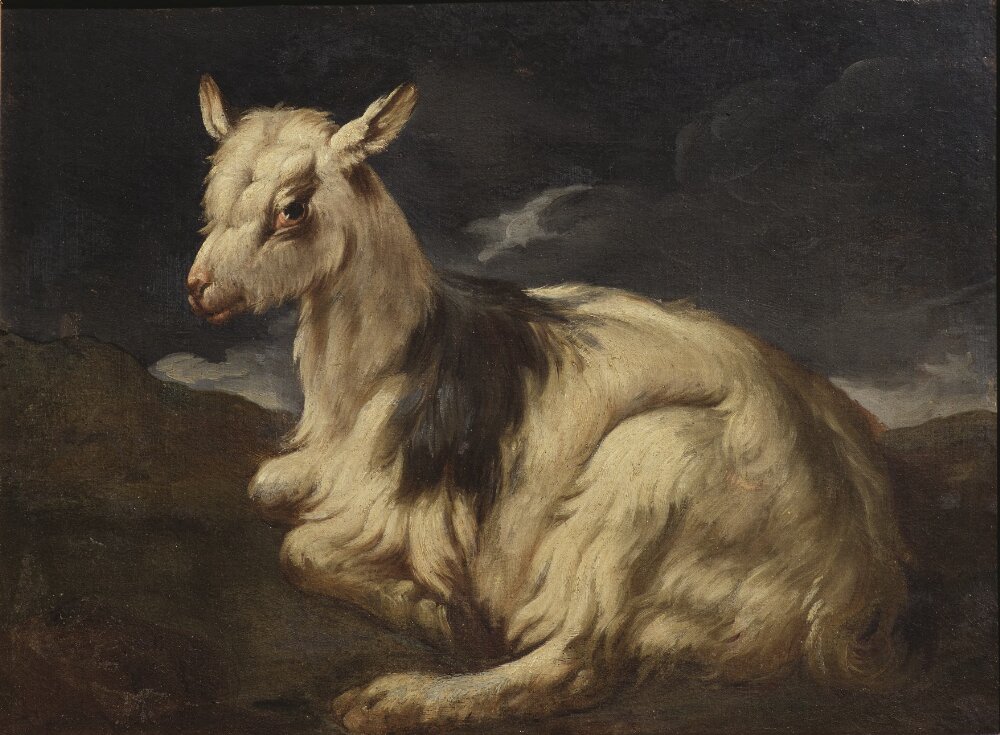“Who wants to help me deworm the goat?”
Though all my wife’s six family members were gathered in the kitchen, utter silence greeted my sister-in-law’s query. A participant in the unanimous abstention, I wondered at the most likely meaning of “deworm.” My imagination flitted between administering some type of medicine to painstakingly tweezing out a wriggling worm from the goat’s hide. After another moment’s hesitation (it was dark and cold outside), I volunteered. Thankfully, the task turned out to be only medicinal, though due to the goat’s refusal to take a pill with her dinner, the medicine now had to be given via an oral syringe. It oddly looked and felt like watery paint (no, I didn’t taste it), but I figured even paint would probably kill worms just as well as any other concoction.
We put on our jackets and headed out to the barn. Though the path from house to barn runs entirely flat, I still managed to nearly face-plant over the slightest of dips in the ground. Upon arrival, my sister-in-law described the two jobs involved in deworming the goat. “You can choose,” she said, “one of us needs to hold her in the corner of the stall, and the other needs to put the syringe in her mouth and then maneuver it to the back right of her throat.” We looked at each other. “Ok, how about I do that and you hold her,” she said. I agreed with that plan.
The entire procedure took about 15 seconds. Surprisingly simple. Once finished, our final task was then to bring another goat into the barn for the night. She wouldn’t budge from just outside of the barn (apparently goats can be stubborn), so I picked her up and carried her into the stall. She sat quite contentedly in my arms, as if a free carry to the barn was exactly what she had been gunning for. I fancied she gave the horses a smug look as I set her down. We then headed back to the house.
This is a rather humdrum episode for a farm, even for the 10-acre hobby farm that my wife’s family calls home. Yet it was quite out of the ordinary for me. I had neither dewormed nor carried a goat before. In fact, I had initially volunteered to help because I realized I hadn’t really interacted with the farm since our arrival. Better late than never was indeed the motto of this trip—it took me until the Saturday after Thanksgiving to make the 100-yard walk from house to barn, despite having arrived on Tuesday.
For many of us who currently live a modern life—with most of our time spent in an apartment or at a desk in a sterile office building—very little, if anything, in daily life requires interaction with the outside, real world of creation. One never even has to think about it. Though I truly enjoy farm chores, I still find myself defaulting to the indoors. Even when a trip to the barn is fresh and interesting, it takes a conscious effort of will to break away from the ease and comfort of being inside. Despite my excuses to stay away from the animals, I feel the pull of the barn as if it beckons: “Come, set aside your comfort, set aside your screens and engage with something real, if only for a little while. You can wash the grime from your hands and clothes easily enough, but you will have a harder time washing the grime from your soul unless you come.”
In many ways a hobby farm exists squarely in between traditional life and modern life—perhaps as the rearguard amidst traditional life’s general retreat. One bathroom in the farm house will have homemade goat soap and another will have neatly-stamped dial soap. If the wicker basket of self-harvested eggs runs out in the midst of Thanksgiving preparations, just open the fridge and pull out a sickly dozen from the corpulent local supermarket (which, for legal reasons, does not rhyme with Broger). Go outside and watch the animals on the farm or stay inside and watch the annually televised Thanksgiving embarrassment of the Detroit Lions. At least some traditions are safe.
My Thanksgiving musings reminded me of a scene from George Orwell’s 1984 where Winston, the main character, looks at his next-door neighbor but cannot see her clearly as a person. Instead, Orwell writes, “He seemed to see a vision of London, vast and ruinous, city of a million dust-bins, and mixed up with it was a picture of [his neighbor], a woman with lined face and wispy hair, fiddling helplessly with a blocked wastepipe.” Winston is steeped in the deadening filth of a decayed life and city and thus struggles to distinguish the form of his neighbor from it.
This unsettling scene reminds us that the world in which we live affects our very perception of the human person. While Winston’s vision is perhaps more tarnished than our own, we cannot claim a wholly clear sight. We easily forget, amid our acclimation to modern, artificial living, that the artificial continually seeks to supplant the natural. And we hardly notice how our souls are thereby weakened.
The true virtue of a hobby farm is that it gives us the space to confront that tension between natural and artificial. In this place between places, we are given a glimpse of viridescent life that allows us to see what modern life wants us to relinquish. We are given a glimpse of real things. We get to see and interact with true creation, but that interaction entails a conscious choice of the natural over the artificial, the real over the fake; true creation over crude creation. Making this choice helps us to see the world, and those in it, more clearly.
That choice does not mean throwing out the store-bought bar of soap, or never watching a televised game of football (though I am open to being convinced otherwise), but it does mean choosing to spend intentional time with God’s creation. It does mean engaging with the people around you. It does mean helping to deworm the goat.
Image credit: Philipp Peter Roos, “A Goat Resting“




2 comments
Luke H.
“…to see the world, and those in it, more clearly.” 🙌🏻🕊️❤️
Martin
Thanks for sharing some interesting reflections. I particularly liked the comparison of watching something natural and watching TV — it’s a similarly passive activity but the former is more nourishing.
I also appreciated your quote from 1984, which reminded me of living in NYC where other humans (especially those we don’t know and pass anonymously on the street) seem to be part of the background — objects to navigate or “deal with”. IMO this fits a larger pattern of lack of empathy, where we act as if other people are mere cardboard cut-out figures in some kind of cartoon world, or video game where we are the only “Player Number 1” so to speak.
Comments are closed.